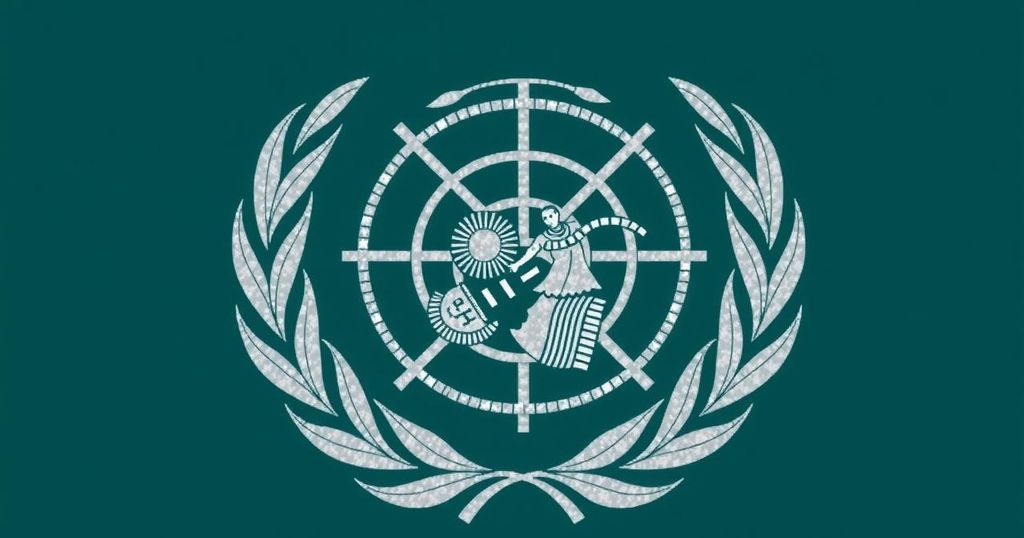ICC Intensifies Investigations into Human Rights Abuses in the DRC
On October 14, ICC Prosecutor Karim A. A. Khan announced plans to intensify investigations into crimes in the DRC, focusing on North Kivu since January 2022. Following a request from the Congolese government, this decision aims to address severe human rights violations, including those committed by the M23 armed group. The ICC has engaged in the DRC since 2004, and the renewed focus on accountability is critical amidst ongoing atrocities. The establishment of a special criminal court is also underway to complement the ICC’s efforts.
On October 14, 2023, International Criminal Court (ICC) Prosecutor Karim A. A. Khan announced an intensified investigative initiative aimed at addressing the severe crimes occurring in the Democratic Republic of the Congo (DRC), specifically in North Kivu province since January 2022. This proactive step follows a formal request from the Congolese government, made last year, to increase the ICC’s involvement in tackling these egregious offenses. The ICC’s engagement in the DRC dates back to 2004, prompted by the government’s initial plea for intervention. This initial investigation led to the prosecution of six individuals, predominantly former armed group leaders. Notably, four of these defendants faced trial for actions taken in Ituri province between 2002 and 2003, resulting in three convictions and one acquittal. Conversely, the other two cases, which pertained to crimes committed in North Kivu in 2009, did not culminate in trials. Human Rights Watch has persistently urged the ICC to also consider the accountability of senior members of the Congolese government as well as military personnel from neighboring countries, namely Rwanda and Uganda, in relation to the extensive human rights violations in the region. The renewed investigative focus offers an essential opportunity to confront the entrenched culture of impunity that exacerbates the severe abuses reported in North Kivu, Ituri, and adjacent areas. Violations of wartime laws continue to be reported, with Human Rights Watch providing accounts of atrocities committed by the M23 armed group, encompassing civilian killings, widespread sexual violence, looting, and property destruction. In early 2024, the M23 and the Rwandan army were implicated in indiscriminate shelling of displacement camps near Goma, aggravating the plight of vulnerable populations. Additionally, the Congolese military and their allied militias have contributed to the precarious conditions faced by displaced persons, carrying out acts of murder, sexual violence, and arbitrary detention. Prosecutor Khan has emphasized his commitment to investigating all factions involved in the conflict, notwithstanding the Congolese government’s preference to concentrate solely on the M23. It is pertinent for ICC member states to recognize the expanded scope of the Court’s operations and extend necessary support to fulfill its mandate effectively across its various cases. Nevertheless, it is crucial to acknowledge that the ICC functions as a court of last resort and cannot assume full responsibility for addressing the multitude of human rights violations. The Prosecutor has commendably acknowledged the actions taken by Congolese authorities in establishing a committee dedicated to forming a special criminal court. The establishment of an internationalized justice mechanism is imperative and has long been awaited; it is anticipated to complement both the ICC’s efforts and the operations of domestic courts, thereby contributing to the reduction of impunity. The Congolese government is urged to advance this initiative with urgency, supported by the ICC and other international partners.
The situation in the Democratic Republic of the Congo has been dire for decades, marked by persistent violence, human rights abuses, and a complete lack of accountability for perpetrators of war crimes. The ICC’s involvement stems from the DRC government’s repeated calls for international assistance to address these issues effectively. The country’s complex history of conflict, particularly in provinces like Ituri and North Kivu, has created an environment rife with violence perpetrated by both armed groups and state actors. Consequently, there is a pressing need for comprehensive justice mechanisms to address past and ongoing violations in order to foster peace and stability.
In summary, the ICC’s recent pledge to amplify its investigative efforts regarding the atrocities in the DRC represents a critical development in the pursuit of accountability for war crimes. While the focus on the M23 is essential, the broader commitment to investigating all parties involved in the conflict highlights the need for comprehensive justice. Furthermore, the planned establishment of a special criminal court in the DRC, supported by the ICC, emerges as a vital step towards addressing the longstanding impunity that has facilitated grave human rights abuses in the region. The collaborative support of international partners will be crucial in advancing these initiatives and ensuring justice for the victims.
Original Source: www.hrw.org




Post Comment